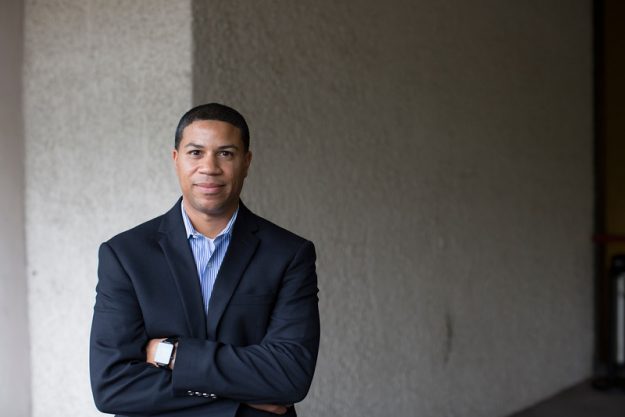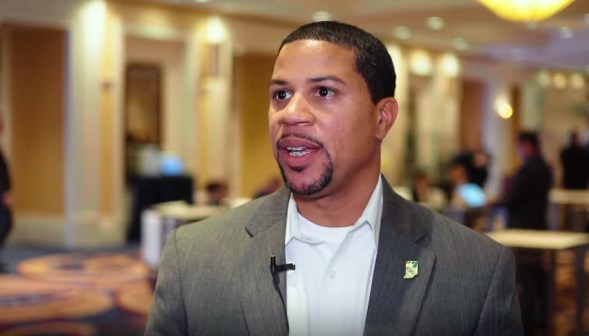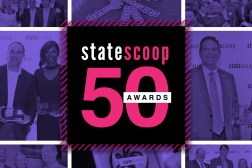Meet the StateScoop 50 GoldenGov Nominees: Indiana CIO Dewand Neely

Indiana Chief Information Officer Dewand Neely has only been on the job since October, but he’s already earning high marks in the state IT community.
He worked extensively on the state’s efforts to use data analytics and open up agency data under former CIO Paul Baltzell, and he’s led the expansion of those efforts since taking over Indiana’s IT shop.
That innovative thinking landed Neely a spot on the list of nominees for the StateScoop 50’s “Golden Gov” category, which recognizes visionaries leading state government into a new technology landscape.
Neely took some time to tell StateScoop about what he’s been working on recently and how he feels about his nomination for the category.
StateScoop: Tell us about some of your main achievements over the past year that may have resulted in your nomination for a GoldenGov award?
Dewand Neely: I’m honored to be nominated for this award. I really believe that this is a reflection of the state and not my personal performance. Indiana has been focused on the outcomes related to policy, funding and decision-making based upon our advanced efforts around data science and data analytics. We have made great strides in using data on an enterprise level to make informed decisions that really have an impact on citizens.
SS: What are you most proud of accomplishing during your time in your role? What’s still left to be done?
DN: In the short time I have been in my role I am most proud of being one of the champions that change the way state government views and uses data on a daily basis. There is still quite a bit of work to be done around government culture and business processes to embrace this new type of thinking, but I feel we have paved the way and provided the roadmap that we need to follow to help it come to fruition.
SS: What’s been the biggest challenge you guys have faced in the past year? How’d you overcome it?
DN: The biggest challenge we faced in the past year is the concept of open data sharing amongst the agencies. Agencies are still quite timid when it comes to openly providing data for analytical work, though all the data is well-secured. Combine that with Health Insurance Portability and Accountability Act and other requirements and you are presented with even more hurdles. To overcome that, it took a great deal of communication, legal assistance and special security considerations that were all adopted and documented in memorandums of understanding to make sure all parties involved were comfortable with the process.
[Read more: For data analytics, states need top-down approach]
SS: Why public service? What lessons would you like to share with the next generation of state and local IT leaders?
DN: Public service is like no other. Unless you are lucky enough to get in the ground floor for a great startup, there is no other place where you can see such an immediate impact resulting from your daily work. The work we do in the public sector has the capacity to create better lives and better life experiences for citizens. You cannot imitate or mimic the feeling that comes from being a part of that in any other place.
For the next generation of leaders, this is a great opportunity to make government better and create meaningful change. We are at a point in time in which a major generation shift in the workforce will be occurring over the next 10 years. We need new, fresh and bright minds to take active roles in public service and fill these vacancies and bring with them the citizen-centric thoughts and ideals that they have been exposed to throughout their lifetime.
SS: What advice do you have for next year’s class of GoldenGov nominees?
DN: The future of government should be all about the citizen, not about government business and not about the old ideals of “this is how government has always run.” There is a tremendous opportunity to use the resources within state governments and have them come to bear on producing a streamlined and efficient experience. Our goal should be to become more like Google and Amazon, using predictive information to help citizens find the services that are available to them.
This Q&A is part of a StateScoop series highlighting the nominees for the StateScoop 50 GoldenGov award. To vote for this nominee, and to vote in the other categories up for awards, go to the StateScoop 50 awards page. Winners of the StateScoop 50 Awards will be announced on May 4.






